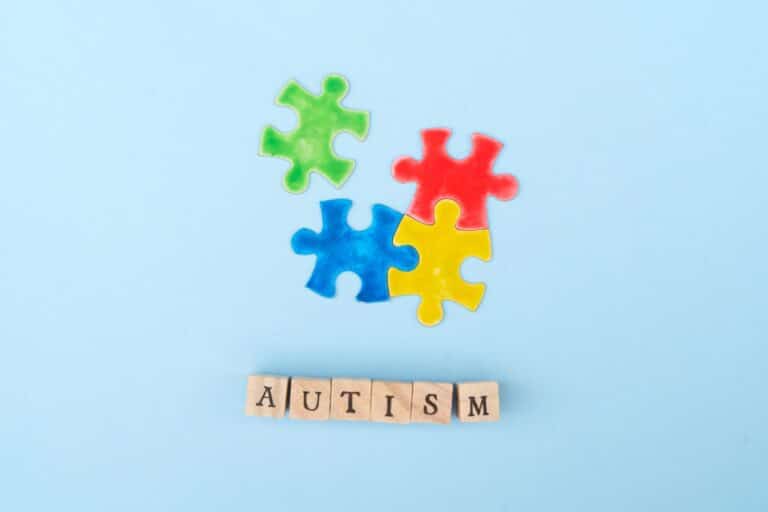Many patients struggling with a substance use disorder (SUD) often have another underlying mental health disorder. Dealing with a drug or alcohol problem and a mental disorder is not an easy task. Interactions between the two can worsen the condition.
That’s why individuals with a dual diagnosis need a different and unique approach during treatment. That which considers both conditions as coexisting rather than separate. This approach is called dual diagnosis treatment.
Experts have found many potential benefits of dual diagnosis treatment for individuals with SUD and other disorders. If you or a loved one is suffering from a dual diagnosis, California dual diagnosis treatment center can come in handy.
What is Dual Diagnosis?
As the name suggests, dual diagnosis is when a person simultaneously has a drug or alcohol addiction and mental health condition. Substance use disorder occurring concurrently with a psychological or emotional problem is also known as co-occurring, comorbidity, or co-occurrence.
Several studies show that approximately half of US citizens with SUD have a mental health disorder as comorbidity. One survey by National Survey on Drug and Health found that about 45% of surveyed people who have SUD also have a mental health illness.
Some of the examples of mental health disorders that may be present as a comorbidity of SUD include:
- Bipolar disorders
- Depression
- Attention-deficit hyperactivity disorder (ADHD)
- Obsessive-compulsive disorder (OCD)
- Generalized anxiety disorder (GAD)
- Post-traumatic stress disorder (PTSD)
- Schizophrenia
- Eating disorders
- Borderline personality disorder (BPD)
A dual diagnosis treatment plan can identify various mental health illnesses in people with SUD and help them recover.
Why Do SUD and Mental Health Disorders Exist Together?
Not enough research has been done to explain why people suffer from dual diagnoses. It’s also challenging to tell which comes first or whether one causes the other.
However, expert analysis narrows down the reasons for co-occurring disorders into three possible scenarios:
- Mental health conditions can potentially fuel substance addictions. This is especially true since people with mental health issues often try to self-medicate themselves using drugs or alcohol.
- Several risk factors may also contribute to this form of co-occurring. For instance, people with specific genes or a history of stress or trauma risk developing both disorders.
- Substance use can also change the brain in specific ways, leading the addict to develop a mental health disorder.
This is especially true considering that symptoms of SUD and several other mental health disorders overlap. It’s crucial to dual diagnose these conditions from the onset. This gives the patient better results and reduces the chances of reoccurring.
Benefits of Dual Diagnosis Treatment
Isolating substance use disorders from mental health disorders and treating them separately in affected people is ineffective. Remarkably, dual diagnosis treatment programs have proven more efficient in helping dual diagnosis patients recover fast and more permanently.
Some of the benefits of a dual diagnosis treatment program as compared to other treatment methods include:
Complete evaluation of mental health
Instead of focusing on substance use, dual diagnosis helps individuals discover other disorders that they are suffering from. The experts will assess all the possible psychological factors that may have led the person to turn into substance use. With this detailed psychiatric assessment, the experts can individualize a treatment plan that will be effective for the individual.
Plan for future
People with co-occurring disorders struggle to do what ordinary people find relatively straightforward, such as going to work. Dual diagnosis treatment can help them put their emotions under improved control. To achieve this, they are progressively taught how to accomplish daily tasks with ease by adapting to new processes and behaviors.
It gives the ability to cope
Drug or alcohol addictions and mental health disorders can cause a person to almost lose control of themselves. With dual diagnosis treatment, they can learn about the future triggers that may degenerate symptoms. This way, it will be possible for the person to avoid such triggers, thus significantly reducing the possibility of a relapse.
Defeat trauma
History of trauma is a possible risk factor for dual diagnosis. Experienced SUD and mental health disorder experts deploy a dual diagnosis treatment. This approach enables the patient to learn more about past traumatic and painful experiences. With guidance, the person learns skills that will allow them to deter these experiences from affecting them in the future.
Support groups
Dual diagnosis support groups use the support of peers to help people recover. People in treatment programs learn from others recovering from the same condition by connecting them to mutual support groups.
Why Self-Medicating Dual Diagnosis Is Not a Good Idea?
Most individuals end up with co-occurring disorders because of trying to self-medicate their mental health illness. Self-medication is a term used to refer to using drugs or substances to defer symptoms of a mental health condition. However, this only gives a tiny and temporary solution and may worsen the situation.
Another reason this approach rarely works is that, with time, the amount of a substance the person needs to take to “feel better” tends to increase. Eventually, they’ll end up with an addiction and dependency problem.
Dual Diagnosis Treatment in California
Dual diagnosis treatment is an area that requires specialization. Some facilities focus on treating either mental health conditions or substance use disorders. This means that for a person suffering from both disorders, a center focusing on one area may not help that much. Dual diagnosis individuals should be taken to centers offering dual diagnosis treatment.
For people in California, Southern California Sunrise Recovery Center Dual Diagnosis Treatment Center in Orange County can help. Southern California Sunrise Recovery Center creates treatment plans to treat dual diagnosis disorders.
At Southern California Sunrise, we understand what treating someone with substance use, and mental health disorder entails. We may use a combination of supervised medical detox, inpatient rehab, outpatient rehab, holistic addiction treatments, or other aftercare services such as support groups to heal our client’s mind, body & soul. Get in touch today or call us now at 855-965-6374.






